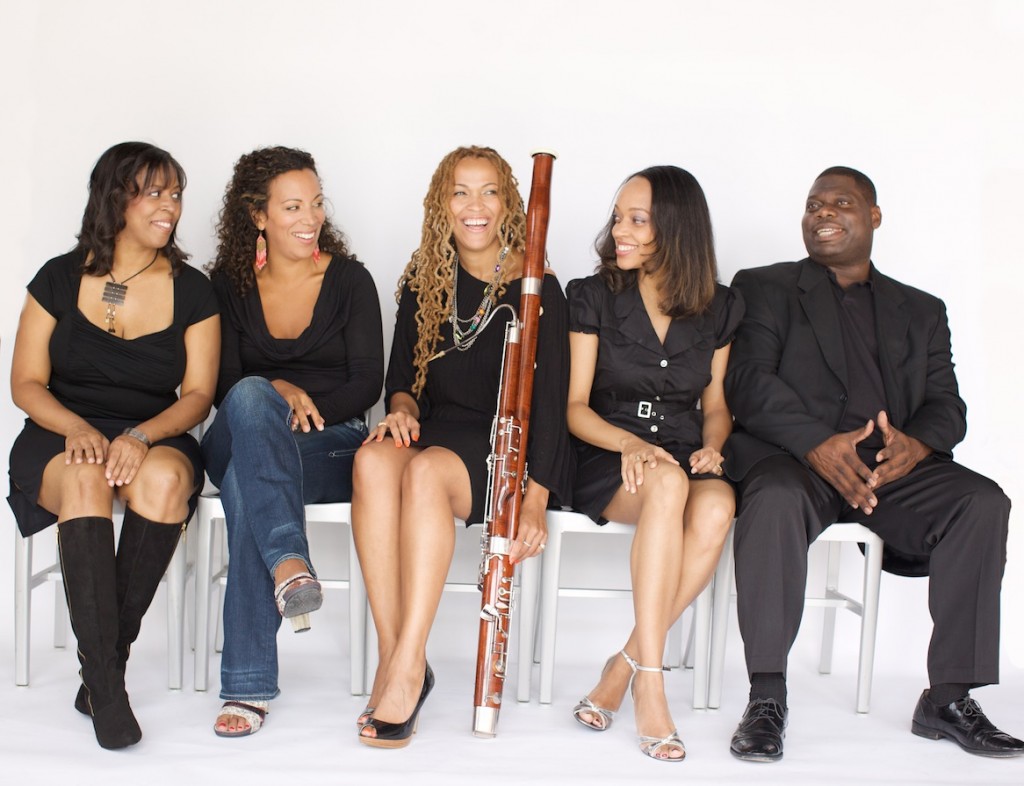Imani Winds serve up a delightful program at Festival Miami

The Imani Winds performed Wednesday night at Festival Miami.
The Imani Winds are known for their adventurous programming. Wednesday’s Festival Miami performance at Gusman Hall clearly demonstrated this by offering as diverse a selection as is possible to find these days. Founded in 1997, Imani is a Swahili term meaning “faith,” and the group has a deep commitment to the blending of cultures, musical exploration, and the commissioning of new works.
The concert opened with the world premiere of Tsigane by Imani’s flutist Valerie Coleman. Somewhat in the vein of an Arabian Night’s episode on steroids, this wildly entertaining and wacky romp managed to even sneak in some Latin rhythms, calling for the bassoon to extend its range by a note. Without tilting towards the avant garde or abandoning tonality, Tsigane proved to be thoroughly contemporary and provocatively conservative at the same time.
Pavel Haas (1899-1944) tragically perished at Auschwitz, yet in his brief life the Czech composer gave us many works to be thankful for, his music rarely sounding grim or self-pitying. His early Wind Quintet is in four movements that vary from expressively lyrical to wryly humorous. The language is closest to that of Janacek, with a touch of Kurt Weill. All sections are beautifully crafted and the Imani members fully immersed themselves in the idiom.
Puzzle-Tocas by Gabriela Ortiz (b. 1964) offered little indication of its Mexican origins, and the piece had a bland, faceless quality that made even its short duration something of a trial.
After intermission the group tapped the art of the arranger with three works. Debussy’s piano Prelude Bruyeres (Heather) has been retooled for many instrumental combination, and the wind transcription by J. Kowalewski is no better or worse than others and the Imani musicians provided an ardent performance.
Of greater interest was the arrangement by Jonathan Russell of Stravinsky’s Rite of Spring. This masterwork for large orchestra reduced to a mere five instruments, seemed destined to fail in this new guise — and fail it did, although so spectacularly it was still a unique experience.
Russell chose to condense the work by lopping off parts much as Stokowski had done for the Disney film Fantasia. Jeff Scott’s French horn playing was bold and invigorating, while the other quintet members appropriately screeched, screamed, whined, howled, and coped admirably with the musical difficulties. Yet with the all important percussion element gone, it all came out sounding like a Rite with the lower half missing–an interesting exercise in virtuosity for both players and arranger, but not something most people would want to hear more than once.
As part of its outreach, the Imani spent several days working with freshmen from the Frost School of Music. The results could be heard when the Stamps Woodwind Quintet took the stage to perform Malcolm Arnold’s Three Shanties. Written in the composer’s best populist style, the handling of these sea shanties was clever and diverting. The Stamps also joined with Imani in Jeff Scott’s effective arrangement of Astor Piazzolla’s Libertango for Double Wind Quintet. It was great fun, as was the entire concert.
Posted in Performances
Leave a Comment
Thu Oct 13, 2011
at 12:37 pm
No Comments






